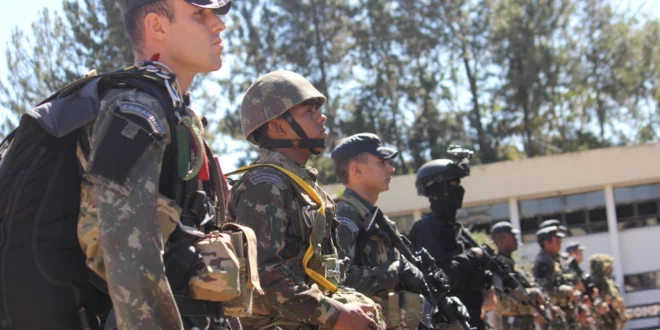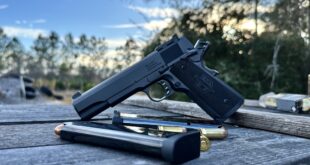by Jose Campos
BRASILIA – In the aftermath of the contentious and razor-thin presidential elections, the message here in Brazil is clear that despite what politicians and judges say, many citizens have cast their vote for who they think has the most power: the Brazilian armed forces.
Demonstrators came out in large numbers throughout the country to protest the election results that will place challenger Luiz Inácio Lula da Silva in office over incumbent president Jair Bolsonaro.
When da Silva was declared winner in the Oct. 30 runoff, protesters denounced the election process and its outcome. In interviews with more than 50 Brazilians over the course of three days, Soldier of Fortune encountered none who believe that the election was above board – which is why they poured into the streets and squares, or blocked the roadways with trucks. Voting machines were rigged, they said; or, people were paid to vote for challenger da Silva. All said they had complete faith in Bolsonaro.
But when Bolsonaro broke a two-day post election silence, and said that come January, he would transfer power to da Silva, the protesters paid no mind.
“They got to Bolsonaro, and he gave up,” said Rodrigo Lopes, who traveled from a small town in order to join protesters in Brasilia. “We have not.”
The solution?
In Lopes’ estimation: the armed forces.
“The military needs to step in,” Lopes said. “They have the power to make things right.”
A woman who overheard our exchange leaned forward to voice her agreement.
“The military can solve this,” said protester Maria Esteves. “They are our hope.”
Esteves wants the military to monitor fresh elections, she said. She does not want them to take charge of Brazil.
The military there once ruled the nation, following a 1964 coup that kept a series of authoritarian generals in power until 1985. Opponents to the regime were treated harshly – many reportedly were tortured, killed, or “disappeared.” Older Brazilians say it came as a relief when the country returned to civilian control.
Bolsonaro himself is a former army officer, and a number of his officials come from the military. But the Ministry of Defense has treated the ties as coincidental, and said it will not intervene in the election outcome.
The protests are permitted by law, but are not a political directive, the ministry said.
“The military knows full well what their duty is,” according to a retired Brazilian general, Paulo Chagas. “The constitution does not allow them to intervene in politics.”
The U.S. State Department views Brazil as dangerous to Americans – but not because of politics. We are at risk, the department says, because we can be viewed as prey.
“Violent crime, such as murder, armed robbery, and carjacking, is common in urban areas, day and night,” the department advises Americans. “Gang activity and organized crime is widespread. Assaults are common.”
Despite the widespread anger in Brazil, though, no one has threatened me. The protesters have not conveyed a sense of menace. They have greeted me warmly, saying they appreciate Soldier of Fortune‘s journalistic interest.
“Thank you for paying attention to us,” said protester Roberto Fontana. “We want to make our voices heard.”
If nothing else, Fontana said, the widespread protests show that the new president-elect does not have a clear mandate from the people.
“He needs to listen to everyone, not just his own voters,” Fontana said.
The protesters say they will stage their rallies until the military steps in to help. But the protesters also must support themselves or their families, and get on with their lives. The coming days will show whether they unhappily go home, or energetically remain in the city squares and outside military barracks.
Jose Campos previously wrote for Soldier of Fortune about the Uvalde school shootings in Texas.
 Soldier of Fortune Magazine The Journal of Professional Adventurers
Soldier of Fortune Magazine The Journal of Professional Adventurers






